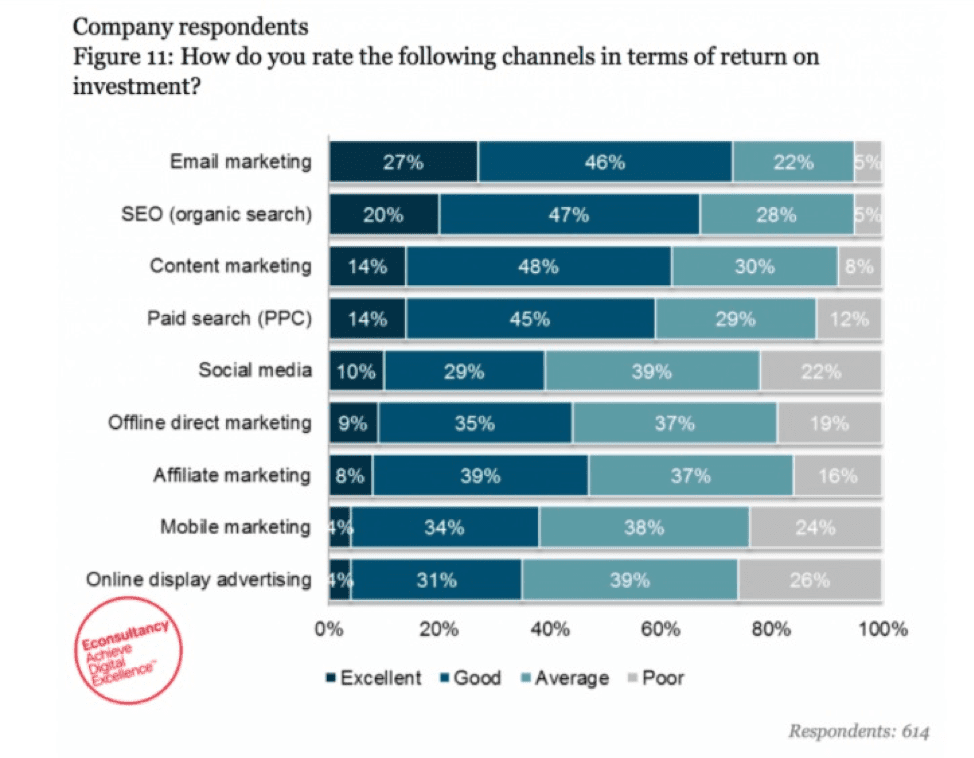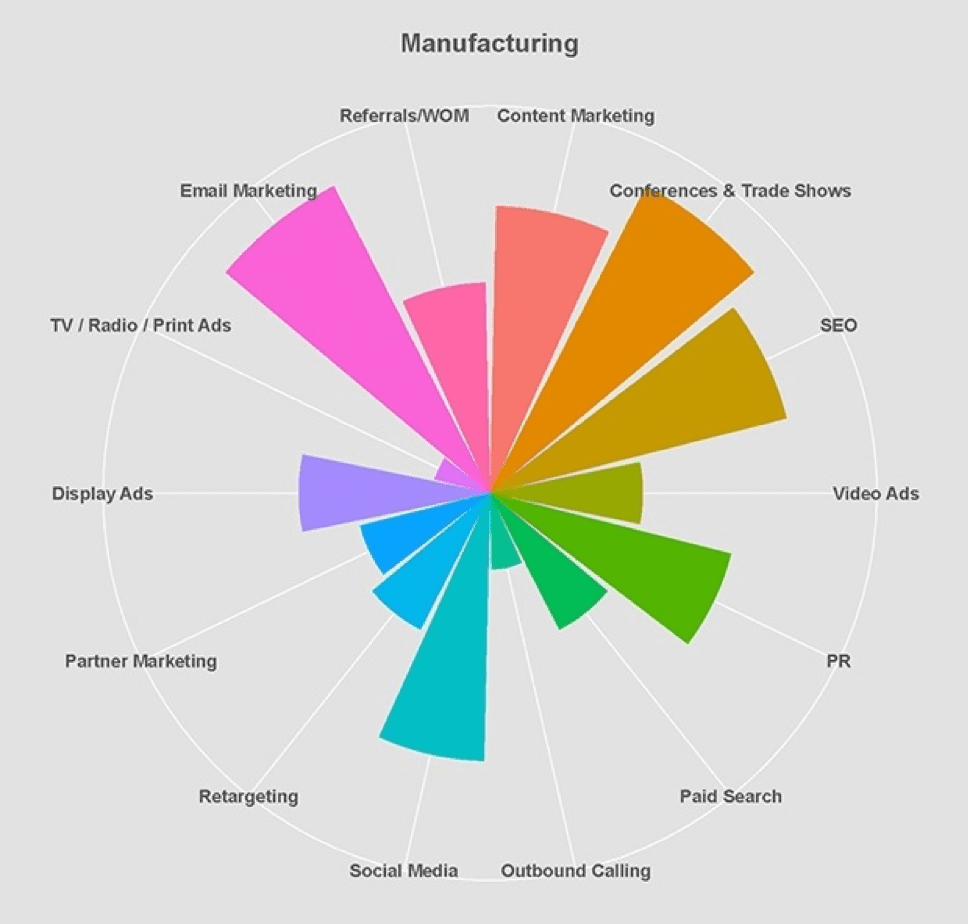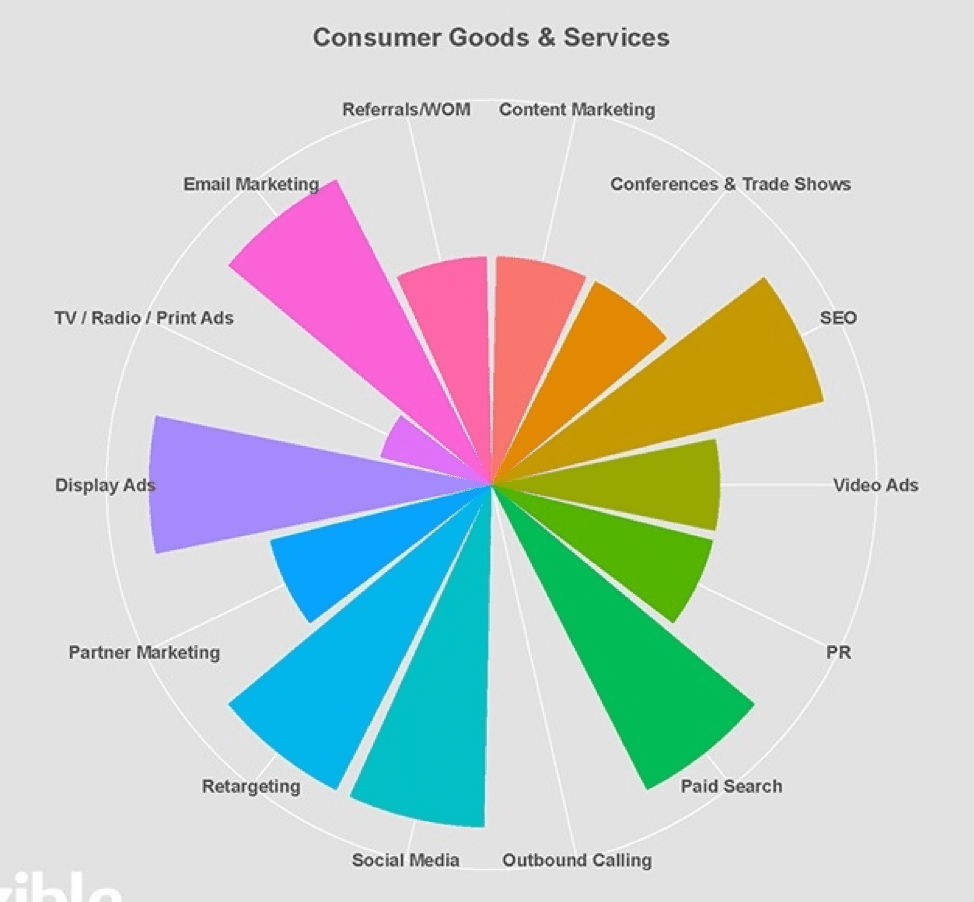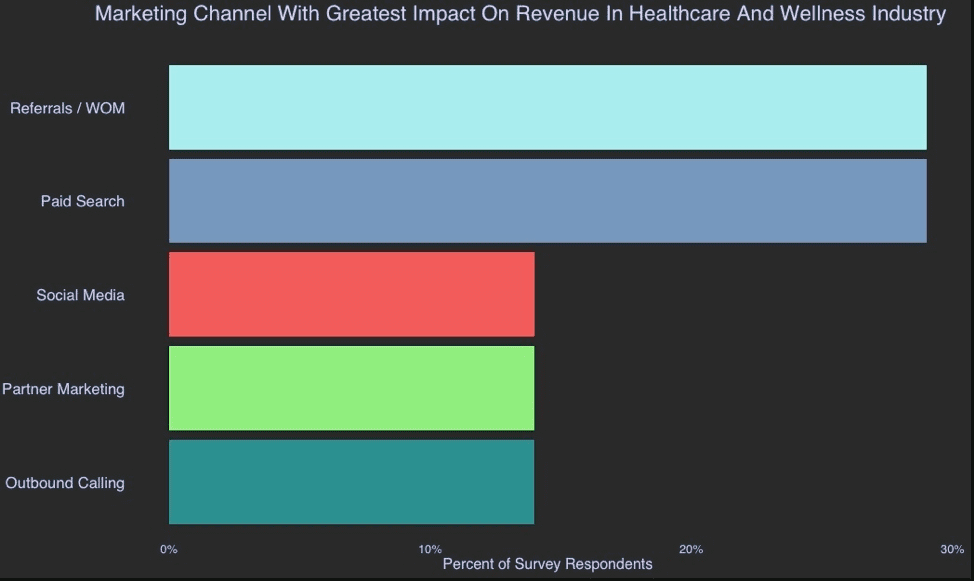Part I: How to Select Marketing Channels Based on Your Industry
Industry matters a lot when it comes time to select marketing channels, and the distinction between B2B and B2C businesses is particularly important. Not all channels work for all businesses, and different industries benefit from focusing on different things in their marketing mix.

Not all marketing channels are profitable for all businesses.
In the first two articles in this series, we covered how your business’ size and budget should influence your marketing channel selection, and we discussed how incorporating various channels into your mix will help you win over leads at different stages of the sales funnel. In this final installment, we’ll take a look at how your industry should influence your marketing channel selection – particularly when it comes to strategies for B2B vs. B2C businesses.
B2B vs. B2C Marketing Channels: What’s the Difference?
Why do B2B businesses and marketers need different marketing channel strategies than B2C businesses? The answer is that B2B and B2C buyers make purchases in fundamentally different ways.
B2B buyers are heavily involved in the decision-making process at companies. They want to make purchases that will help them do their job better and make more money. B2C buyers, on the other hand, make purchases for themselves. They want to make their personal lives easier or more enjoyable in some way.
Because B2B and B2C buyers have different mindsets, they go through the buying process differently, too. The B2B buyer’s journey tends to be longer and more involved than the B2C version. There are several reasons for this:
- B2B products and services are often expensive, and companies don’t want to buy them on a whim.
- B2B purchases are often technical and in-depth. This means that decision-makers have to do a significant amount of research before they buy.
- B2B purchases often represent a significant commitment. Buyers want to take their time and evaluate a business thoroughly before deciding whether to work with them or use their product long-term.
B2C purchases are often much simpler in comparison. Many consumer products are relatively inexpensive, so B2C businesses are more likely to see one-time customers and impulse buyers. Most B2C businesses don’t need to build the same kinds of relationships with customers that B2B businesses do. B2C depends on a wide, shallow buying pool, rather than a small but deep one.
What Are the Best Marketing Channels for B2B Businesses?
If you work in a field like manufacturing, SaaS, or advertising, which marketing channels should you use?
Your website is a good place to start in terms of a distribution channel. Remember, you’re marketing your product or service to other professionals, so your web presence should reflect your own professionally.
Couple your website with a strong content strategy (and marketing strategy) to boost your ranking in search engines. Maintaining a blog is always a good bet – it adds value to your site and puts resources right at your visitors’ fingertips. Video can also be an excellent medium for showing off your product and answering any questions people might have about it.

Content marketing and SEO should be a priority if you’re in the tech and software industry.
Once your web presence is in good shape, you’ll need to reach out and network actively with your leads to really reach your target market. Several good ways to do this include:
- Email marketing. This is a good way to stay in touch with people who visit your site.
- Social media marketing generally isn’t as useful for B2B businesses as it is for B2C businesses, but LinkedIn is an exception since it’s geared towards professionals and marketers.
- Direct marketing or in-person events like trade shows and conferences. These events give you a valuable opportunity to show off your product or service in a hands-on setting to consumers. Try to get speaking engagements at networking events if you can – this is a powerful way to market build your business’ reputation.

Conferences and trade shows are particularly helpful if you’re in manufacturing.
What Are the Best Marketing Channels for a B2C Business or Company?
If you have a B2C business, you may have a varied customer base, so it’s especially important to do audience research to reach those potential customers. Remember, business-to-business transactions take time and effort. Consider questions like:
- How old is your typical customer?
- Is your product a necessity or a “fun” purchase for them?
- How tech-savvy are they?
- Do they seek out luxury, or do they love a good bargain with retailers?
- Where do they spend time online?
If you sell consumer goods and services, you’ll want to reach the widest slice of your target audience that you can, while avoiding wasting your marketing budget on people outside that audience. Your ideal cross-channel marketing mix might include:
- An easy-to-navigate website.
- Paid ads.
- Display ads, especially in conjunction with a good retargeting strategy.
- Social media. Focus on the platforms your audience uses for fun, such as Facebook, Instagram, or Pinterest.
- A personalized email strategy based on leads’ past purchases or behavior on your site.
In general, focus on channels that boost your brand’s image and visibility, even if you have to work with different channel partners. Don’t worry too much about building relationships with individual customers unless your product is very specialized or expensive.

Paid search, display ads, retargeting, social media, and integrated marketing communications all play a big role in a B2C marketing plan.
Health and wellness, for example, is a B2C niche that requires a slightly different approach and different channel members. People tend to do their research before making a health-related purchase. Look for marketing approaches that boost your social proof and trustworthiness when thinking about multi-channel marketing.
Your website is particularly important in this niche. Spend some extra time making sure it presents the image you want to present. A low-quality website can instantly undermine your business’ image, so be sure to use Google Analytics to see where people are landing so you can optimize those pages first and foremost. Content marketing should also be a priority for you when it comes to digital marketing – this is a good way to demonstrate your expertise and educate people about why they might need your product or service.
Paid ads can be helpful for health companies, because many people looking for health solutions already know what they want. Most importantly, though, focus on making personal connections. Getting referrals though existing customers is an effective strategy for many health and wellness companies. Going to conferences and sending out highly personalized marketing emails can also work well.

Paid search and referrals are good marketing channel choices if you’re in the health and wellness industry.
Wrapping Up
No matter what industry you’re in, it’s important when you select marketing channels that are best suited to the type of business you run. In particular, keep the differences between B2B vs. B2C marketing channel strategies in mind as you put together your own cross-channel marketing mix. Focusing on channels that make sense for your industry will help you earn a better return on your time and marketing dollars.
Featured Image Credit: imresearchcenter.com


